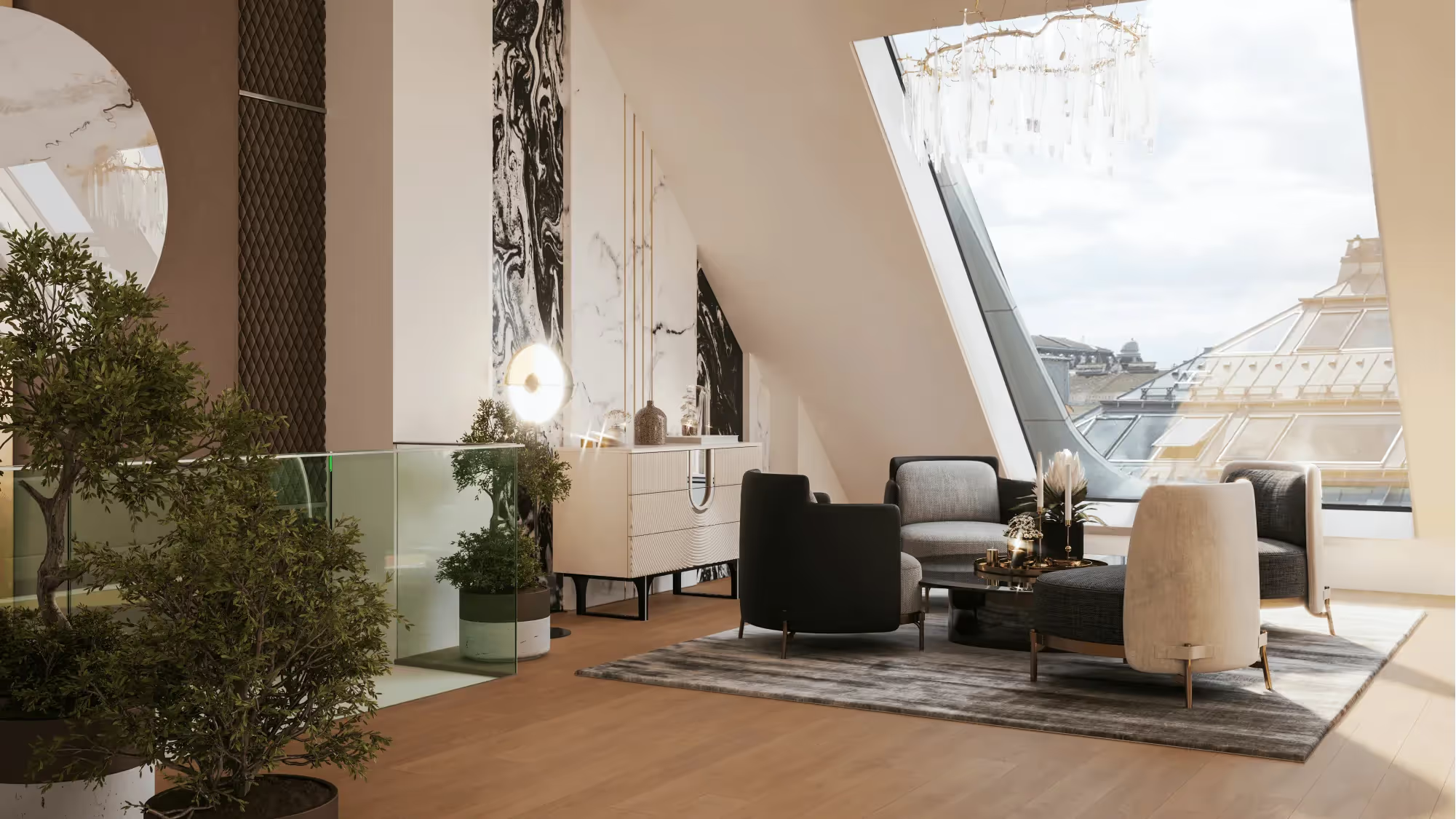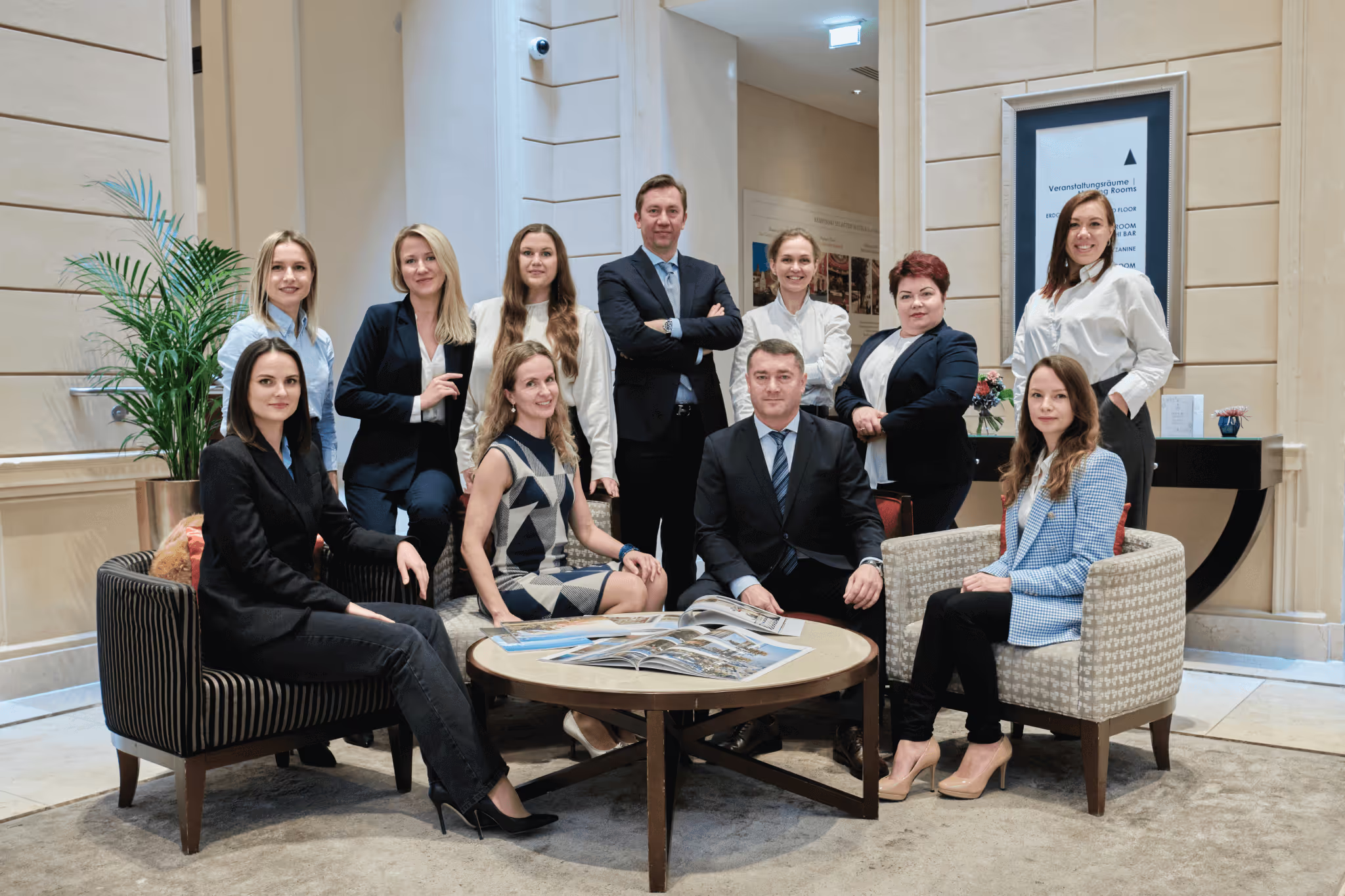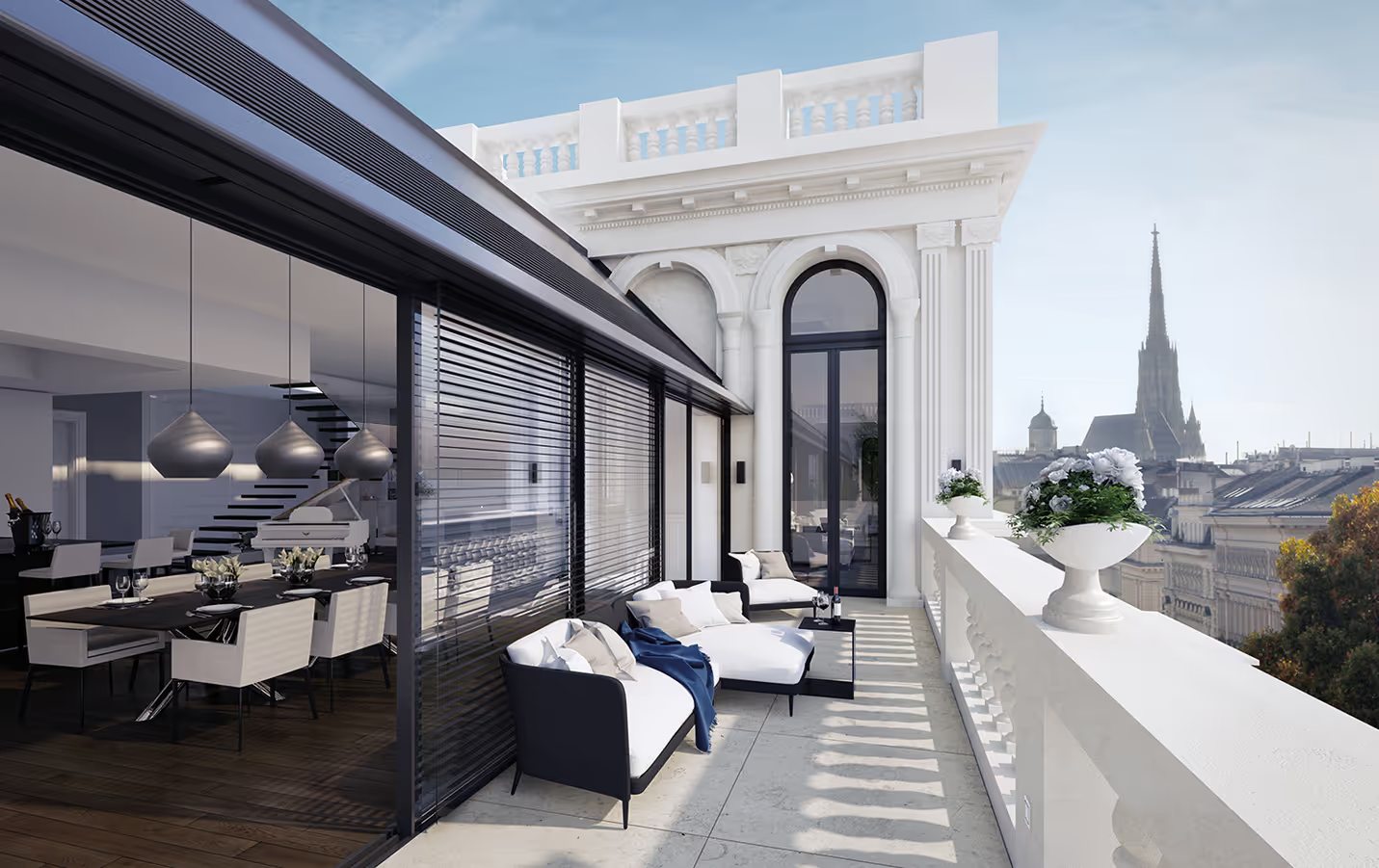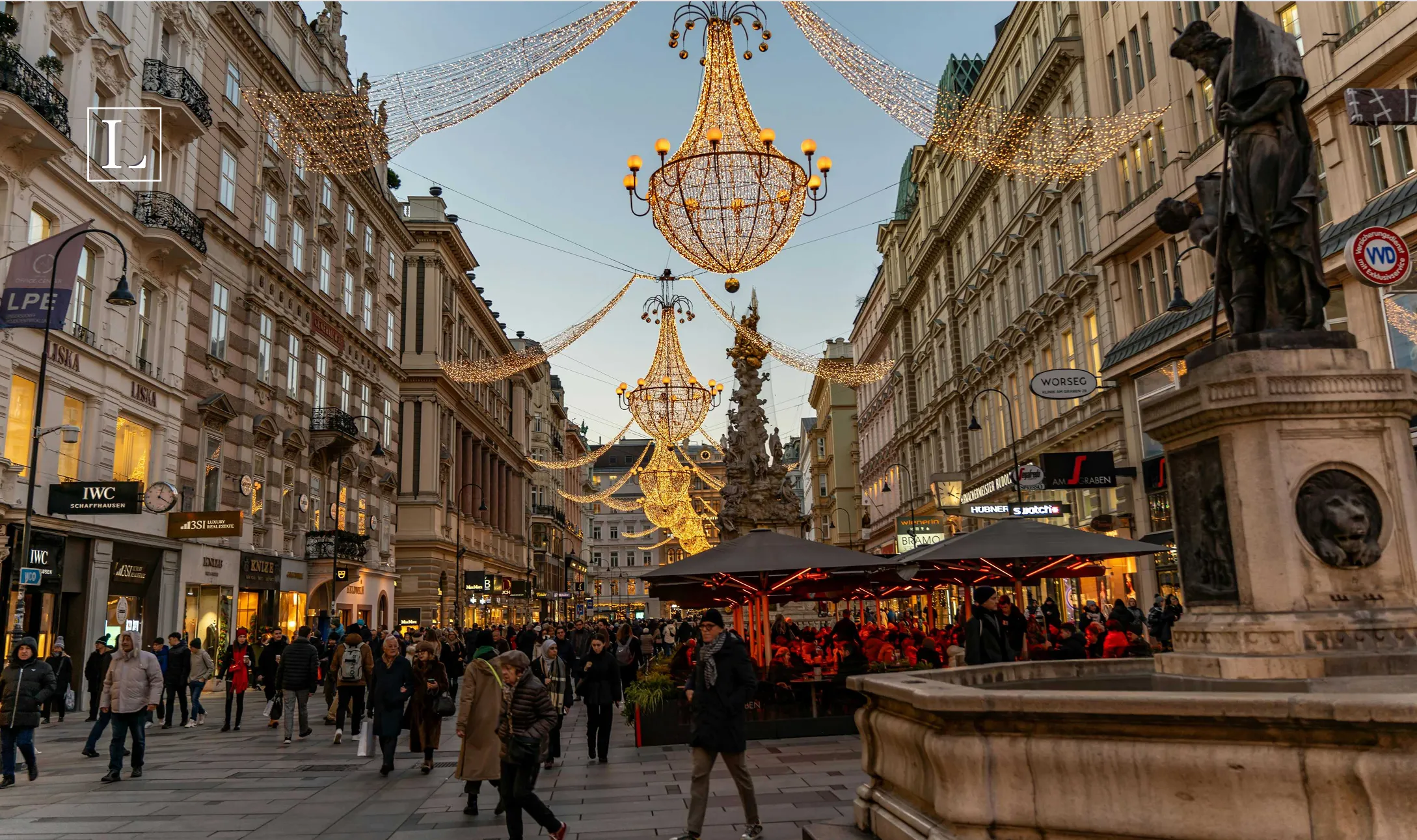How much does it cost to live in Vienna?
What amount is needed to live a comfortable life in the Austrian capital? Read this article about the cost of education, medicine, rental housing and other services in Vienna in 2023.

The cost per month to live in Vienna in March 2023, according to the Numbeo portal, averaged at EUR 860 for one person living alone, and about EUR 3,000 for a family of four. This amount includes everyday expenses, including utilities and public transport expenses, but does not include monthly rent. Rental prices range from EUR 545 to EUR 1,300 for a one-bedroom apartment and from EUR 900 to EUR 1,700 for a three-bedroom apartment.
The cost of living in Vienna in 2023: How much money does one person and one family need to live a comfortable life?
In 2022, Vienna was recognized for the third time in a row as the city with the best living conditions according to the Economist Intelligence Unit (EIU). The capital of Austria consistently holds leading positions in other similar ratings, for example, it held the first place in the Mercer rating, which assesses the quality of life for 10 years in a row. At the same time, the cost of living in Vienna is lower than in a number of other European capitals and megacities. According to the Numbeo portal, at the beginning of March 2023, consumer prices excluding rent in London were 19.5% higher than in Vienna. When including rental housing in the calculation, the difference increases to 58%, since rental prices in the UK capital are 161% higher. In Berlin, the cost of living both without and including rent is higher than in Vienna, by 10% and 19%, respectively. In Zurich, prices are almost twice as high as in Vienna; by 92% without rent for real estate, and by 107% taking the rental cost into account.
As stated by Numbeo, in Vienna as of March 2023, one person will need approximately EUR 1,400–2,160 an average for living, including rent, and a family of four people – from EUR 3,860 to EUR 4,460. At the same time, about 30.3% of the total cost structure is dedicated to rent, 27.4% of the budget is for purchases in supermarkets and 16% is allocated to spending in F&B establishments.
The cost of Education in 2023 in Vienna
he possibility of free admission to public kindergartens is one of the advantages of Vienna over a number of other European cities. Due to subsidies, parents only have to pay for meals, but low-income families can also get an exemption from this fee. The cost of meals in kindergartens in Vienna was EUR 72.33 per month, according to data for the fourth quarter of 2022.
The cost of attending private kindergartens depends on the rates of a particular institution. According to Numbeo, in March 2023, the services of private kindergartens and other preschool institutions averaged EUR 249 per month, whilst actual prices range from EUR 190 to EUR 350.
As for secondary education, there are 92 secondary general education schools (AHS) in Vienna, including 68 public and 24 private schools. Numbeo concluded that the cost of yearly education at an international primary school varies from EUR 7,000 to EUR 20,000, with the average price being EUR 11,100. In general, the tuition fee also depends on the specific institution and can start from EUR 5,000 and exceed EUR 40,000 for standard classes from Monday to Friday. Boarding school services can reach EUR 60,000 per year, or even more.
For example, at Vienna International School, the annual tuition fee for the 2022-2023 academic year varies from EUR 21,912 for elementary school students to EUR 26,988 for high school students. In another popular educational institution called AMADEUS International School Vienna, the cost of education in the 2022-2023 academic year ranges from EUR 18,240 to EUR 52,350 (including meals), with the price depending on the age of the child and other factors.
Note: You can find a selection of the best schools in Vienna for foreign children in this article.
The cost of higher education in Austria for a foreign student depends on his/her citizenship. Representatives of Switzerland and EU countries who have enrolled in full-time studies or participate in an exchange programme, are provided with free education in public universities in most cases.
They only need to make a contribution of about EUR 21 each semester, covering membership for the student union and accident insurance. Citizens of non-EU countries must additionally pay an average of EUR 727 per semester. For example, these rates apply to the oldest and biggest university in Austria; the University of Vienna, where students from non-EU countries pay EUR 748 per semester (including the student union membership fee). The tuition fee at the Vienna University of Technology is EUR 363 per semester. The fee is twice as high for citizens of non-EU countries and constitutes EUR 727. In addition to this amount, a student has to pay a union fee of EUR 21.
Note: You can read more information about the education system in Austria in this article.
The cost of medical treatment in 2023 in Vienna
According to the Statistics Office of Austria, by the end of 2021, the share of public spending on health care was 78.3%, and the remaining 21.7% was paid by residents themselves. The country has a system of compulsory medical insurance, which allows residents to receive ‘free’ medical care. Medical insurance covers both Austrian citizens and expats and about 99% of the entire population of the country is connected to the system.
If you are in official employment in Austria, the employer is obliged to register his/her employee with the social insurance authority. After that, the insurance payment is deducted from the employee's salary on a monthly basis.
Self-employed individuals and entrepreneurs also have to join the CHI programme. But, in addition to insurance payments to the amount of 7.65% of their gross income, they are required to pay 20% of the cost of treatment. For freelancers who will undergo a scheduled medical examination (Selbständig gesund), this fee will be halved – by up to 10%.
Private medical insurance is also available in the country, which allows patients to increase their comfort by getting an appointment with the most reputable doctor, reducing the waiting time, getting a separate hospital room, etc. The average cost for private medical insurance constitutes EUR 220 per month, but prices may vary significantly depending on the age of the patient, the specific list of services that the insurance will cover, and other conditions. Insurance Austria and Care Visa companies offer expats different insurance plans at prices from EUR 51 to EUR 510 per month.
Note: More detailed information about the health insurance system in Austria for expats can be found here.
Public transport fares in 2023 in Vienna
There is a well-developed public transport network in Vienna, which includes trains, buses, trams and a metro. The purchase of a single ticket allows you to use different types of transport within one trip and costs EUR 2.40, whilst a preferential and pension rate costs EUR 1.20 and EUR 1.50. The ticket can be purchased at pre-sale points, any metro station, a number of tobacco shops or online in an online store. You can also buy a ticket when boarding the tram, but by doing so thes cost will rise to EUR 2.60.
In March 2023, the cost of a taxi ride was EUR 1.60 per 1 km on average, with actual prices ranging from EUR 1.30 to EUR 2. In addition, you need to pay EUR 4 for boarding the car. The cost of waiting constitutes EUR 25-28 per hour.
If you prefer to travel by private car, then you will have to pay an average of EUR 1.80 for 1 liter of gasoline. Fuel prices in the country range from EUR 1.55 to EUR 2.10.
The cost of buying and renting a car in Vienna
In Austria, car prices are higher than in a number of other EU countries. But purchasing a car in this state is often more profitable than importing your own car from abroad, because you will have to pay a duty of 10% of the cost of the vehicle (when imported from non-EU countries), as well as a tax of 20% on import turnover and other fees.
One of the best-selling models in Austria is the Volkswagen Golf. Buying this car at an official dealership will cost at least EUR 26,800. A similar used car from 2016-2018 can be found for EUR 12,000. The average price for a new Toyota Corolla sedan or its equivalent is about EUR 23,300, or a used 2019 car can be bought for 19,000.
In addition, when acquiring a car, you must pay a registration fee of EUR 200, as well as mandatory car insurance, which will cost about EUR 60-150 per month. Regular inspections and maintenance will cost about EUR 8,000 per year.
Note: Detailed instructions for buying a car in Austria can be found here.
Car rental rates in Austria are also usually higher than the average European ones. Usually, the cost for car rental is EUR 50 per day. For example, the daily rental of an Opel Corsa with a manual transmission costs EUR 45, while a Toyota Corolla with an automatic transmission costs EUR 82.
You may be charged an additional fee for GPS rental and insurance and car rental companies often require payment of a fee from young drivers under the age of 25.
The cost of food in 2023 in Vienna
The University of Vienna calculated the approximate cost of accommodation for international students, with about EUR 350 per month being required for one person's meals in 2023.
Usually, residents of Austria purchase products in chain supermarkets and farmers' markets, which are also popular.
In March 2023 in Vienna, 1 liter of milk cost an average of EUR 1.31 and 1.5 liters of drinking water costs EUR 0.60, according to Numbeo. A loaf of white bread (500 g) is sold for about EUR 1.92, 1 kg of potatoes for EUR 1.59, 1 kg of cheese for EUR 10.83, 1 kg of white rice for EUR 1.87, and 12 chicken eggs for EUR 3.68. As for the prices for meat products, the price of 1 kg of chicken fillet is EUR 10.78, and beef is EUR 14.75. Oranges and apples are sold for EUR 2.24 per 1 kg, tomatoes — EUR 3.15, and bananas — EUR 1.69.
How can we help you?
If you have studied the information about the cost of living in Vienna, and have confirmed your decision to move to Austria, first of all you will need to solve the issue of finding a future residence. Luxury Immobilien GmbH is a full-service real estate agency that offers a full range of services related to property, both in Vienna and in other federal states of Austria. Our agents will help you to purchase or rent housing that best suits your goals and budget. You can find a wide selection of both new buildings and units within the secondary market, including in exclusive historical buildings, in our catalogues. If necessary, we will provide you with legal advice, help you create an exclusive interior design for your home, assist you in obtaining a mortgage and solve any other related issues.

Share your contact details, and we will happily assist you in finding your dream property







-p-2000.webp)
.avif)
%20(2).avif)





